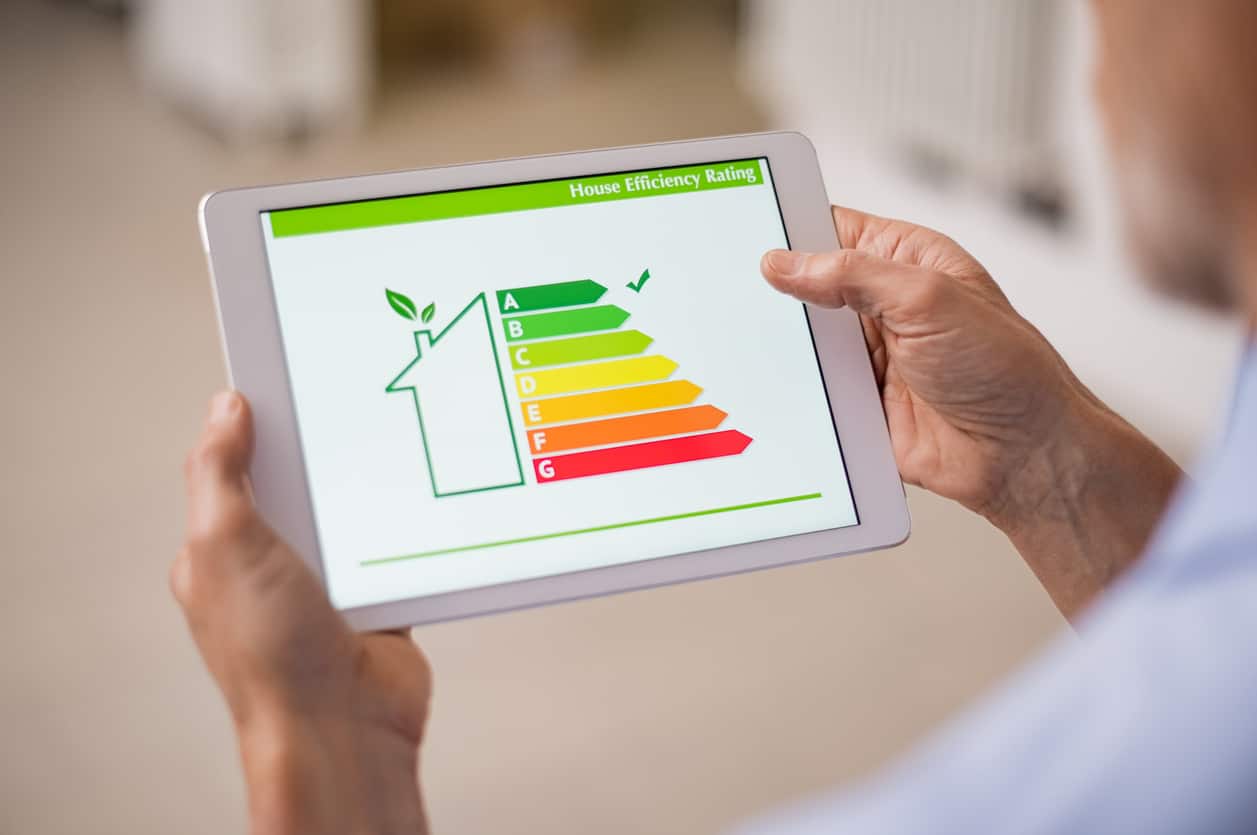Former Prime Minister Rishi Sunak scrapped legislation to increase minimum EPCs in rental properties last year, but the new government could bring them back.
As early as next week, buy-to-let landlords across the UK could be set to find out what the new rules might be on EPC ratings in their rental homes, according to comments from a spokesperson for the Department for Energy Security and Net Zero (DESNZ).
Speaking to Landlordzone, they said they would be “surprised if there wasn’t an announcement next week” from the department on when the previous target of all rental properties achieving a minimum EPC rating of C by 2030 would be reintroduced by the new Labour government.
While Labour have said previously that all rental properties would need to be rated C in their EPCs by 2030, they have also stated that no one would be forced to remove their old gas boiler as part of these plans – so there is scope for a slightly gentler approach.
Landlords already focused on EPCs
Previous targets set by the Tories meant that all rental properties in the UK must already achieve a minimum EPC rating of E in order to operate, unless exceptional circumstances apply such as the landlord having spent the maximum required amount (£3,500) on upgrading the property.
But with the impending next step – which was later scrapped – being that all rental properties on new tenancies must hit the required level of C in order to be legally let, many landlords had already been switching their priorities to the energy efficiency of their homes.
This involved either retrofitting and upgrading existing properties, such as by installing double glazing or draught-proofing, as well as selling off older, less energy efficient assets and in many cases investing in new-build homes, which are among the most energy efficient housing stock.
Attracting more tenants to rentals
The upcoming legislation wasn’t the only incentive behind property investors and landlords prioritising energy efficiencies in their properties, though.
Increasingly due to the cost of living crisis, soaring energy bills, and a greater level of concern and environmental awareness, tenants have listed EPC ratings as a key concern when looking at where to rent. This could be both to reduce bills, and to reduce their own carbon emissions.
As such, landlords looking to stay ahead of the market and be able to offer the most appealing accommodation to tenants have either already invested, or had plans to invest in the near future, in more energy efficient property.
Numerous surveys have backed this up, such as one by Paragon Bank in April, which revealed that almost four in 10 portfolio landlords (37%) are continuing to upgrade their rental properties to EPC ratings of C or above despite changing targets from the government.
Commenting on these findings, Louisa Sedgwick, Paragon Bank Commercial Director of Mortgages, added: “We often see landlords release capital from existing properties in their portfolio to fund expansion or property upgrades.
“With mortgages rates lower than last year, we are seeing increased interest in remortgaging across the market to support landlord growth ambitions.”
The Greener Homes Report by Rightmove also found that one in five (19%) of tenants say that potential energy bills and the eco credentials of a property will be a “major factor” when choosing a home.
Labour’s ‘warm homes plan’
So as soon as next week, we could expect an announcement from the government regarding how, and when, minimum EPC ratings could once again become a focus point in the rental sector.
In its Warm Homes Plan, Labour states:
“The energy shock of recent years has highlighted the urgent importance of improving energy efficiency in British homes. Labour will invest an extra £6.6 billion over the next parliament, doubling the existing planned government investment, to upgrade five million homes to cut bills for families.
The Warm Homes Plan will offer grants and low interest loans to support investment in insulation and other improvements such as solar panels, batteries and low carbon heating to cut bills. We will partner with combined authorities, local and devolved governments, to roll out this plan. Labour will also work with the private sector, including banks and building societies, to provide further private finance to accelerate home upgrades and low carbon heating. We will ensure homes in the private rented sector meet minimum energy efficiency standards by 2030, saving renters hundreds of pounds per year. Nobody will be forced to rip out their boiler as a result of our plans.
Labour will save families hundreds of pounds, slash fuel poverty, and get Britain back on track to meet our climate targets. Our plan will mean good skilled jobs for tradespeople in every part of the country.”










